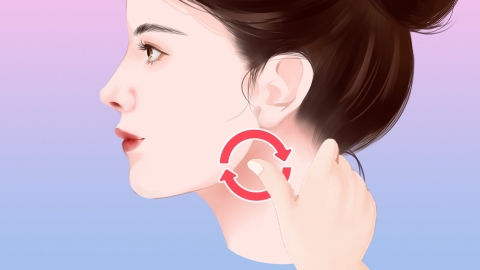How to treat abnormal thyroid function
Generally, the main causes of abnormal thyroid function include improper iodine intake, mental stress, Hashimoto's thyroiditis, toxic diffuse goiter (Graves' disease), and thyroid nodules. Patients can choose general treatment, medication, or other interventions based on their specific conditions. A detailed explanation is as follows:
1. Improper Iodine Intake
Long-term excessive or insufficient iodine intake may interfere with thyroid hormone synthesis, leading to abnormal thyroid function. Dietary adjustments are necessary—those with iodine deficiency should consume more iodine-rich foods such as kelp and nori, while those with excessive iodine intake should avoid high-iodine diets. Under a doctor's guidance, patients may use iodized or non-iodized salt to maintain balanced iodine intake.

2. Mental Stress
Chronic anxiety, depression, or sudden significant emotional trauma may affect the hypothalamic-pituitary-thyroid axis, causing thyroid hormone secretion disorders. In daily life, individuals should regulate emotions through activities such as exercise and listening to music, ensure sufficient sleep, and seek psychological counseling when necessary to restore endocrine stability.
This condition results from abnormal immune attack on thyroid tissue, leading to hypothyroidism, which manifests as fatigue and cold intolerance. Under medical supervision, patients may take levothyroxine sodium tablets, thyroid extract tablets, or selenium yeast tablets to supplement hormones, regulate immunity, and alleviate symptoms.
4. Toxic Diffuse Goiter
Autoantibodies stimulate the thyroid gland to overproduce hormones, causing hyperthyroidism, characterized by palpitations and excessive sweating. Under medical supervision, patients may take methimazole tablets, propylthiouracil tablets, or propranolol tablets to inhibit hormone synthesis and relieve symptoms. Severe cases may require radioactive iodine-131 therapy or subtotal thyroidectomy.
5. Thyroid Nodules
Abnormal proliferation of thyroid tissue forms nodules, some of which affect hormone secretion and cause functional abnormalities. Benign nodules require regular follow-up and may be treated with levothyroxine sodium tablets under medical guidance to inhibit nodule growth. When there is a high risk of malignancy or large nodules are present, surgical removal of the thyroid nodule is required, followed by thyroid hormone replacement therapy as needed after surgery.
In daily life, it is important to maintain proper iodine intake and avoid extreme dietary habits; maintain a positive mindset and avoid prolonged mental stress; establish regular sleep patterns and engage in moderate exercise; and undergo regular thyroid function tests and ultrasound examinations to detect and address abnormalities promptly, thus maintaining thyroid health.









